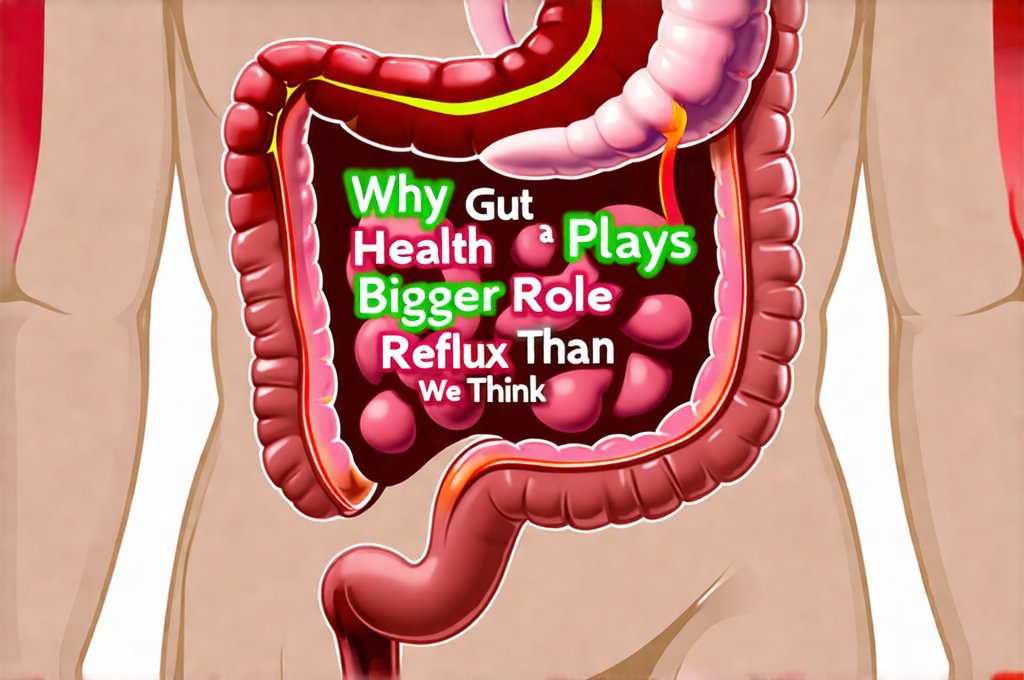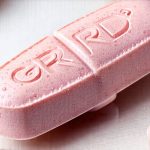Heartburn. Acid reflux. That burning sensation in your chest after a meal – many of us know it all too well. For decades, conventional wisdom pointed primarily towards excessive stomach acid as the root cause, leading to widespread use of proton pump inhibitors (PPIs) and antacids. While these medications can provide temporary relief, they often don’t address the underlying issues, and long-term reliance can even create new problems. Increasingly, however, research reveals a far more nuanced picture, one where gut health plays a surprisingly significant role in experiencing reflux symptoms. It’s becoming clear that acid isn’t always the villain; sometimes, it’s merely a symptom of a larger imbalance within our digestive system and beyond.
The traditional focus on reducing stomach acid overlooks the complex interplay between digestion, gut microbiota, motility, inflammation, and even psychological stress. This is not to say acid-reducing medications are inherently bad – they have their place for acute situations – but rather that solely targeting acidity often misses the mark when it comes to chronic reflux. Understanding the connection between a healthy gut ecosystem and proper digestive function can open doors to more sustainable and effective strategies for managing this common, yet often debilitating, condition. We’re learning that addressing the root cause is far more beneficial than simply suppressing symptoms.
The Gut Microbiome & Digestive Function
The human gut harbors trillions of microorganisms – bacteria, fungi, viruses, and others – collectively known as the gut microbiome. This intricate ecosystem isn’t just passively residing within us; it’s actively involved in almost every aspect of our health, including digestion. A diverse and balanced microbiome is crucial for efficient food breakdown, nutrient absorption, and maintaining a healthy digestive tract. When this balance is disrupted (a state called dysbiosis), it can significantly contribute to reflux symptoms.
- One key way the microbiome influences reflux is through its impact on gastric emptying. Certain bacterial species help regulate the rate at which food moves from the stomach to the small intestine. Slower gastric emptying means food stays in the stomach longer, increasing pressure and potentially leading to acid being forced back up into the esophagus.
- The microbiome also affects lower esophageal sphincter (LES) function. The LES is a muscular valve that prevents stomach contents from flowing backward. An imbalance in gut bacteria can impact vagal nerve tone—the nerve responsible for controlling the LES—leading to a weakened or inappropriately relaxed sphincter, allowing acid reflux to occur.
- Furthermore, an unhealthy microbiome promotes inflammation throughout the digestive tract. Chronic inflammation damages the esophageal lining, making it more sensitive to even small amounts of stomach acid and exacerbating heartburn symptoms.
A healthy gut microbiome isn’t just about what bacteria are present; it’s also about their metabolic activity. Beneficial bacteria produce short-chain fatty acids (SCFAs) like butyrate, which nourish the cells lining the colon, reduce inflammation, and support overall gut barrier integrity. A compromised microbiome produces less SCFAs, weakening this protective barrier and increasing susceptibility to digestive issues, including reflux. Understanding short chain function can be key.
The Gut-Brain Connection & Reflux
The relationship between our gut and brain is bidirectional – meaning they constantly communicate with each other. This “gut-brain axis” profoundly impacts digestion and can significantly influence reflux symptoms. Stress, anxiety, and depression are all known triggers for heartburn, but the underlying mechanisms go beyond simply feeling stressed.
Our brains don’t just react to what’s happening in our gut; they actively influence it. When we experience stress, the body releases cortisol, a hormone that can disrupt digestion by slowing down motility and increasing stomach acid production. Simultaneously, stress can alter the composition of the gut microbiome, favoring less beneficial bacteria and contributing to dysbiosis. This creates a vicious cycle where stress worsens reflux symptoms, which then further exacerbates anxiety and stress.
- The vagus nerve plays a central role in this communication pathway. It’s responsible for transmitting signals between the brain and the digestive system. Chronic stress can impair vagal tone, leading to reduced LES function and increased susceptibility to acid reflux.
- Mindful eating practices—paying attention to your food and savoring each bite—can help regulate the gut-brain axis. This practice promotes better digestion, reduces stress levels, and potentially minimizes reflux symptoms. Conversely, eating quickly or while distracted can disrupt digestive processes and increase the likelihood of heartburn. Considering gut brain connections is vital.
Dietary Strategies for Gut Health & Reflux
Addressing gut health often starts with dietary modifications. It’s not about strict elimination diets, but rather focusing on nourishing foods that support a balanced microbiome and healthy digestion.
- Increase Fiber Intake: Fiber acts as food for beneficial gut bacteria, promoting their growth and diversity. Excellent sources include fruits, vegetables, whole grains, legumes, and seeds. Aim for at least 25-30 grams of fiber per day.
- Incorporate Fermented Foods: Fermented foods like yogurt (with live cultures), kefir, sauerkraut, kimchi, kombucha, and miso are rich in probiotics – live microorganisms that can help restore a healthy gut microbiome. Start slowly to avoid digestive upset.
- Limit Processed Foods, Sugar & Artificial Sweeteners: These disrupt the microbiome, promote inflammation, and contribute to dysbiosis. Reduce intake of sugary drinks, processed snacks, fast food, and artificial sweeteners.
Beyond these general guidelines, identifying individual food sensitivities can be incredibly helpful. While a blanket elimination diet isn’t always necessary, paying attention to how your body responds to different foods and eliminating those that trigger symptoms can significantly reduce reflux. Consider keeping a food journal to track what you eat and any associated symptoms. The goal is not just to eliminate problematic foods but also to understand why they cause issues – often relating back to gut health imbalances. Gut trouble can manifest in many ways, even beyond children.
Addressing Leaky Gut & Inflammation
“Leaky gut,” or increased intestinal permeability, occurs when the lining of the small intestine becomes damaged, allowing undigested food particles, toxins, and bacteria to leak into the bloodstream. This triggers an immune response and contributes to systemic inflammation, which can exacerbate reflux symptoms.
- Strategies to improve gut barrier function include: consuming bone broth (rich in collagen), incorporating L-glutamine supplements (an amino acid that supports intestinal repair—consult a healthcare professional before supplementing), and reducing inflammatory foods from your diet.
- Identifying and addressing underlying causes of inflammation is crucial. This may involve managing stress levels, getting adequate sleep, and engaging in regular physical activity. Chronic inflammation isn’t just limited to the gut; it affects the entire body, so holistic approaches are often most effective.
The Role of Lifestyle & Stress Management
Beyond diet, lifestyle factors play a significant role in gut health and reflux management. Regular exercise promotes healthy digestion and reduces stress levels. Getting adequate sleep is vital for restoring the body’s natural rhythms and supporting immune function. However, perhaps one of the most impactful strategies is stress management.
- Techniques like mindfulness meditation, yoga, deep breathing exercises, and spending time in nature can all help reduce cortisol levels and promote vagal nerve tone.
- Creating a relaxing mealtime environment – eating slowly without distractions – supports proper digestion and minimizes stress on the digestive system.
- Addressing underlying emotional issues through therapy or counseling can also be incredibly beneficial, as unresolved emotions can contribute to chronic stress and exacerbate reflux symptoms. Create routine for optimal wellness.
Dietary Strategies for Gut Health & Reflux
Addressing gut health often starts with dietary modifications. It’s not about strict elimination diets, but rather focusing on nourishing foods that support a balanced microbiome and healthy digestion. Learning food reactions is essential.
Ultimately, managing reflux effectively requires a holistic approach that addresses the underlying causes rather than just suppressing symptoms. By focusing on gut health – nurturing a balanced microbiome, reducing inflammation, and managing stress – we can significantly improve digestive function and alleviate this common condition, leading to lasting relief and improved overall well-being. Planning for travel kit is also a proactive step. You might be able to improve health within 30 days!


















